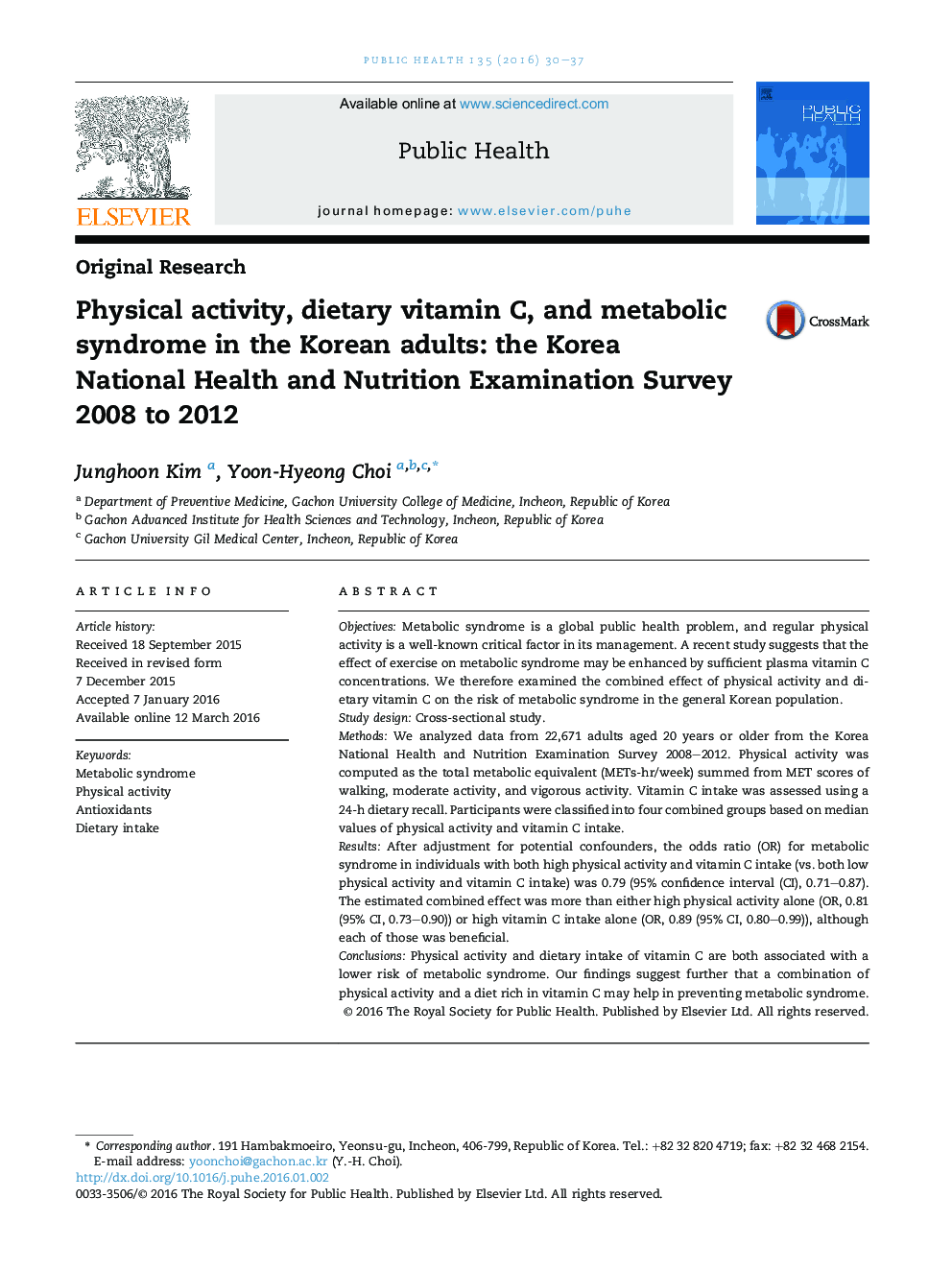| Article ID | Journal | Published Year | Pages | File Type |
|---|---|---|---|---|
| 1087282 | Public Health | 2016 | 8 Pages |
•This is the first study to examine the combined effects of physical activity and dietary vitamin C on metabolic syndrome.•Physical activity and dietary vitamin C were associated with a lower risk of metabolic syndrome in general adults.•Physical activity combined with vitamin C intake may more effectively reduce the risk of metabolic syndrome.•Eating a diet rich in vitamin C plus getting enough physical activity may be a good strategy to prevent metabolic syndrome.
ObjectivesMetabolic syndrome is a global public health problem, and regular physical activity is a well-known critical factor in its management. A recent study suggests that the effect of exercise on metabolic syndrome may be enhanced by sufficient plasma vitamin C concentrations. We therefore examined the combined effect of physical activity and dietary vitamin C on the risk of metabolic syndrome in the general Korean population.Study designCross-sectional study.MethodsWe analyzed data from 22,671 adults aged 20 years or older from the Korea National Health and Nutrition Examination Survey 2008–2012. Physical activity was computed as the total metabolic equivalent (METs-hr/week) summed from MET scores of walking, moderate activity, and vigorous activity. Vitamin C intake was assessed using a 24-h dietary recall. Participants were classified into four combined groups based on median values of physical activity and vitamin C intake.ResultsAfter adjustment for potential confounders, the odds ratio (OR) for metabolic syndrome in individuals with both high physical activity and vitamin C intake (vs. both low physical activity and vitamin C intake) was 0.79 (95% confidence interval (CI), 0.71–0.87). The estimated combined effect was more than either high physical activity alone (OR, 0.81 (95% CI, 0.73–0.90)) or high vitamin C intake alone (OR, 0.89 (95% CI, 0.80–0.99)), although each of those was beneficial.ConclusionsPhysical activity and dietary intake of vitamin C are both associated with a lower risk of metabolic syndrome. Our findings suggest further that a combination of physical activity and a diet rich in vitamin C may help in preventing metabolic syndrome.
